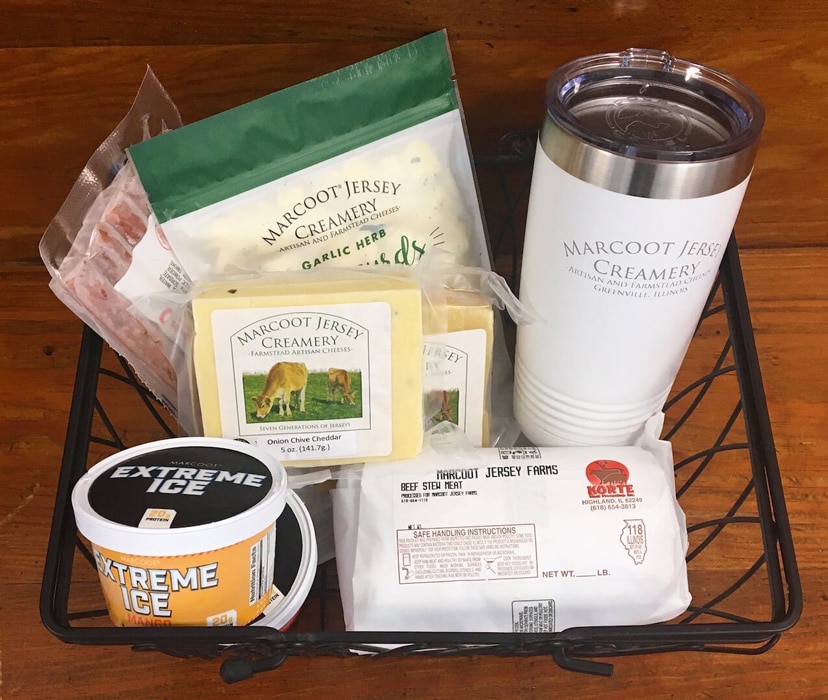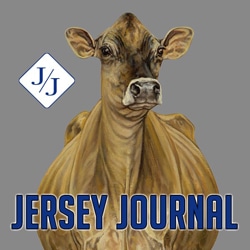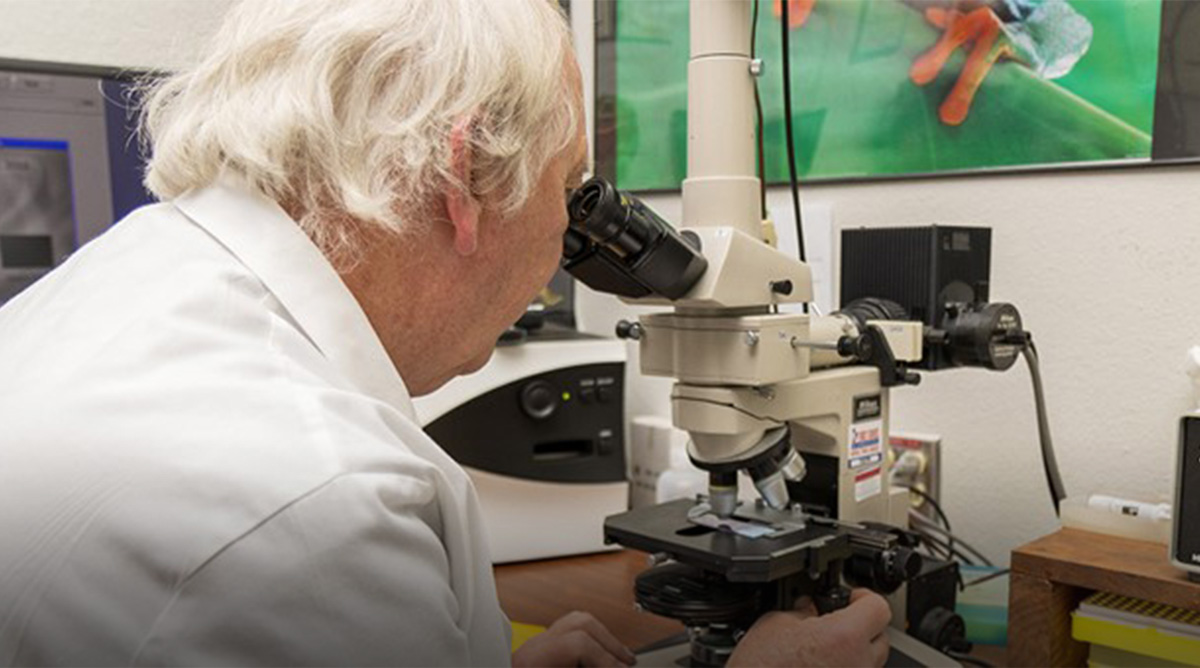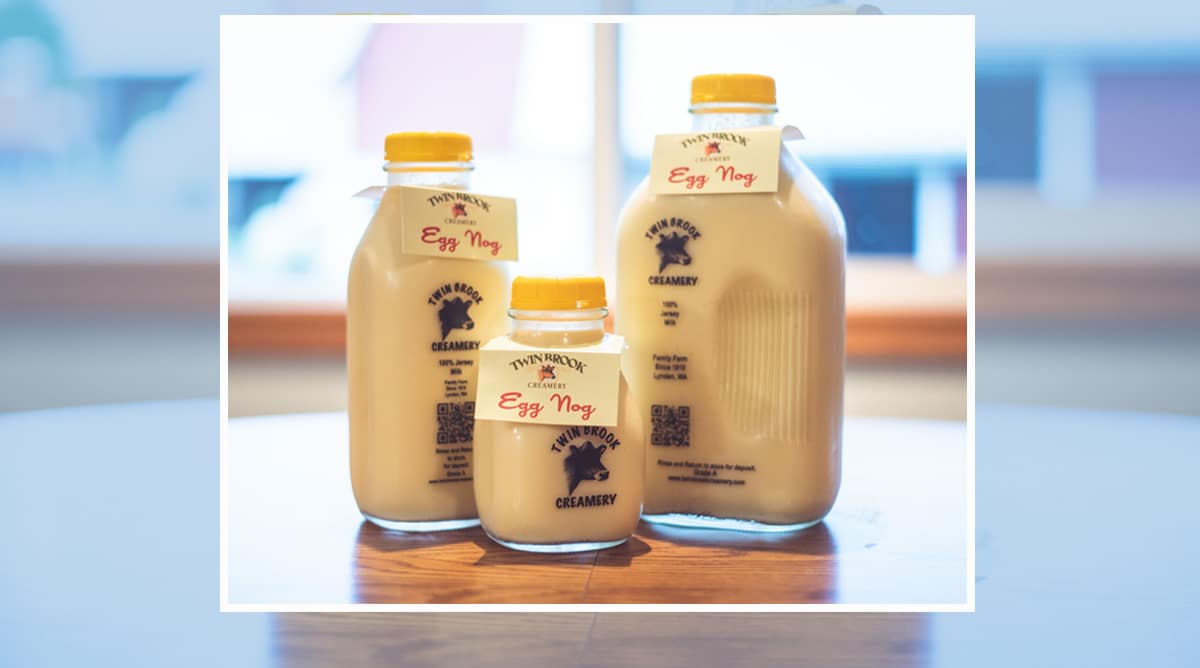Continuous Innovation Leads to Success for Marcoot Jersey Creamery

The world of commerce operates very differently today than it did even a decade ago. To be successful, businesses need to continually innovate, keep a pulse on consumer needs and operate in an environment of accountability. Opportunities abound for those with a spirit of entrepreneurship, including those in the dairy industry.
After developing a strong market for cheese, Marcoot Jersey Creamery of Greenville, Ill., has broadened their product line with a fresh whey product, Extreme Ice. The tasty blend of whey and frozen fruit is the go-to for post-training recovery by some of the world’s most elite athletes. Extreme Ice has also helped the creamery reach its goal of utilizing every drop of valuable milk made by its herd of Registered Jersey cows.
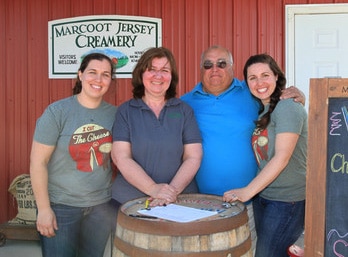
Creamery president Amy Marcoot and her team capitalized on their relationship with major league baseball teams in St. Louis, Mo., and Arlington, Texas, to develop Extreme Ice, an idea they had begun tinkering with about four years ago. They worked with team chefs and nutritionists to fine-tune their prototype and became certified through the National Science Federation last fall, a move that earns credibility in the lucrative sports world.
Extreme Ice is also finding fans outside major league baseball, from Olympic-level athletes like Gia Lewis-Smallwood, the current U.S. record holder for women’s discus, to workaday Americans looking for a tasty way to get their daily allotment of protein.
Curds and Whey
Marcoot Jersey Creamery was established 10 years ago as a means of bringing Amy and her sister, Beth, into the Jersey dairy operated by their parents, John and Linda. The Marcoots started with cheese, developing markets locally and then across the Midwest. Their product line ranges from fresh cheese like curds and Mozzarella to cave-aged Tomme and Gouda. The creamery is an All-Jersey producer and markets products using the Queen of Quality label. Extreme Ice was developed to better utilize fresh whey, a byproduct of cheesemaking.
“When we started out, we were making cheese from 55-60 cows and feeding whey to heifers and steers,” Amy noted. “That worked well for us initially and made for some really tasty Jersey beef for our customers.”
But, with plans to double the milking string by 2017 and incorporate a pair of robotic milkers, the Marcoots knew they would have to make changes, so began researching how other cheesemakers used their whey.
“We found that large cheesemakers are financially able to recoup costs to dehydrate whey and sell it as powder,” noted Amy. “Smaller cheesemakers in densely populated or creamery-dense areas, like Wisconsin, have a ready market for their whey.”
“Since neither of those applied to us, we needed to create something we could market ourselves, so began to experiment,” continued Amy. “Our first version of the product was a healthy Italian ice of sorts that we called Whey Ice. It was mix of fresh whey and shaved frozen fruit in an 8 oz. container.”
“I brought it with me to one of my regular meetings with the chef for the baseball team in St. Louis to get his take on it.”
“He thought it could be very valuable to the players if it had more protein and was especially excited about the cold, frozen feature. Another request was to make the container small, so players would consume the product in a sitting, without waste.”
“I thought to myself: that’s an easy fix. I called our product-creating guru, Audie, on the way home and by the time I pulled into the drive, she was well on her way to reworking the prototype.”
With a few more tweaks and a product rename, Extreme Ice made its debut as a 5 oz. container of frozen fresh whey and crushed fruit. It is now available in strawberry, strawberry-banana, and mango flavors.
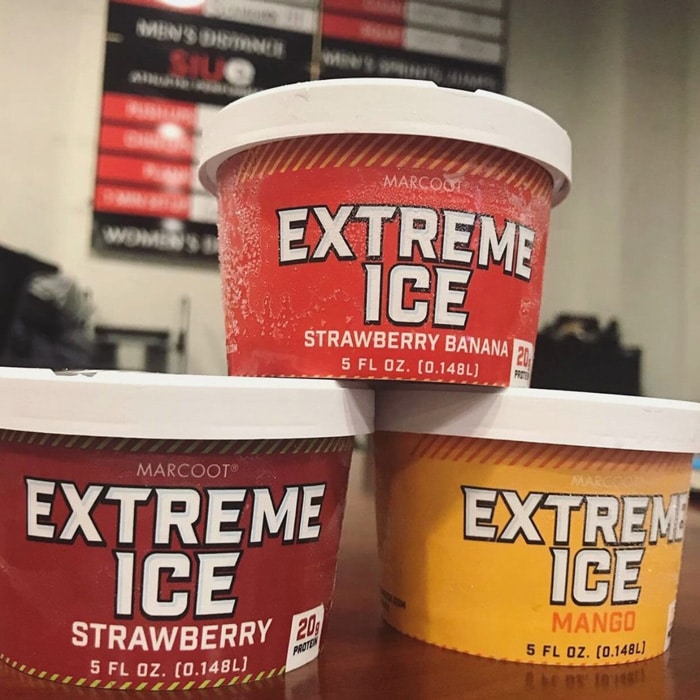
Though dairy has long been known for its protein, especially among athletes, this product takes nutrient-dense a step further. It packs 20 grams of easily digestible protein with fast-acting carbs into a remarkably small container. Another bonus, it is a clean fuel, with no added sugars, artificial sweeteners, thickening agents, preservatives or other additives.
Though professional athletes were early adopters, demand among other audiences soon followed. Extreme Ice is also on the menu for college athletes and nursing home residents and is available to consumers in stores across Missouri. Expanding these markets is the next step for Marcoot Jersey Creamery, an effort that requires as much trial and error as product feature development.
“Two of our biggest marketing challenges: how do we efficiently make a frozen product available at distance and where do we position it in the grocery store?” noted Amy. “If we locate it in the ice cream isle, people looking for healthy foods won’t find. If we put it in the health food isle, impulse ice cream shoppers won’t find it.”
“Finding the niche will just take time.”

“I believe much of our success at Marcoot Jersey Creamery has come from our ability to think out of the box with product development, our close relationship with customers and our ability to test products on a small scale.”
“Other companies can make dairy products faster and bigger. Our commitment to customers, concern for the environment and desire to make a premium product is what differentiates us.”
Cows Came First
Long before they made cheese, the Marcoots were milking cows. Their story begins six generations before Amy and Beth, in 1840, when the “Markuts” sailed from Switzerland to New Orleans, traveled up the Mississippi River by steam ship to southern Illinois, and settled in Greenville. They changed the family name to the previous old-world spelling and established Marcoot Jersey Farm.
Today the herd is 110 milking cows. They are fed a primarily grass-based diet and milked with a pair of Lely robots. Milk flows 30 feet in a pipeline from barn to creamery, where it is pasteurized and used to produce cheese and whey products.
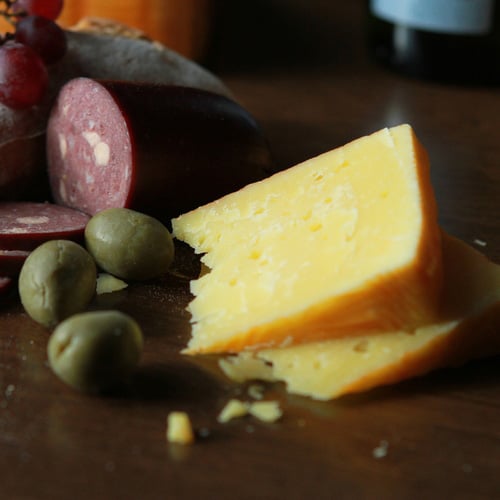
Generally, Amy runs creamery business and sales. John and Beth manage the cows while Linda handles product quality control and food safety. Audie Wall, who has been with the team from the onset, heads manufacturing. The Marcoots also employ a staff of 18 other people to operate the dairy herd and creamery.
“Though many assume it was Beth’s and my idea to switch to robots, it was actually Dad’s,” commented Amy. “I initially balked because I figured it would be taking a job away from someone. That has not been the case, however. We need as many people to care for the cows today. They are just managed differently.
“We still need someone to feed calves twice a day, move cows between paddocks, manage their health and nutrition and handle the myriad of other tasks on a dairy farm. The robots allow us to spend time with family rather than standing on our feet twice a day in a parlor.”
Facilities are set up to enhance consumer learning about dairying. Regular, scheduled tours are offered Monday through Saturday from April 1 through December 31. The tour includes a guided look of the milking parlor, calf barn and creamery and a sampling of several artisan cheeses.
For other visitors, a viewing window in the creamery allows them to watch as cheese is made and a “field to fork” video provides information about the farm. Private tours are also offered to groups of 10 or more, structured to meet the group’s specific needs.
In addition to cheeses and Extreme Ice, customers can purchase a variety of other goods at the on-farm store, including grass-fed Jersey beef, hand-dipped ice cream and other local products. The farm store and online sales comprise about 10% of overall creamery sales. Food service accounts for about 60% of sales and retail stores comprise the balance.
Long Term Commitment
“In the aftermath of the coronavirus, life looks different for all of us and we are finding new ways to conduct business,” Amy remarked. “But environments like this are not new to the farming community, which has been forced to pivot quickly in the face of disasters many times over the years. We will come through this because we always have.”
“We are confident there will always be a market for products that are made in a manner that is respectful to people, employees, animals and the land.”
“When I walk the hallway of our creamery and see photos of seven generations of my family, I am proud to honor a tradition that was established by my family more than 150 years ago. Though our business looks differently than it did in 1840, we continue to be caretakers for a herd of Registered Jersey cows.”
“When Beth and I set out for college, we didn’t plan to come back to the farm, but found our way back anyway. I guess this is just what we do.”
“Our goal is to make a place for the eighth generation to continue the dairy tradition should they decide that is what they want to do. To make that happen, we need to continually innovate the way we do business.”
